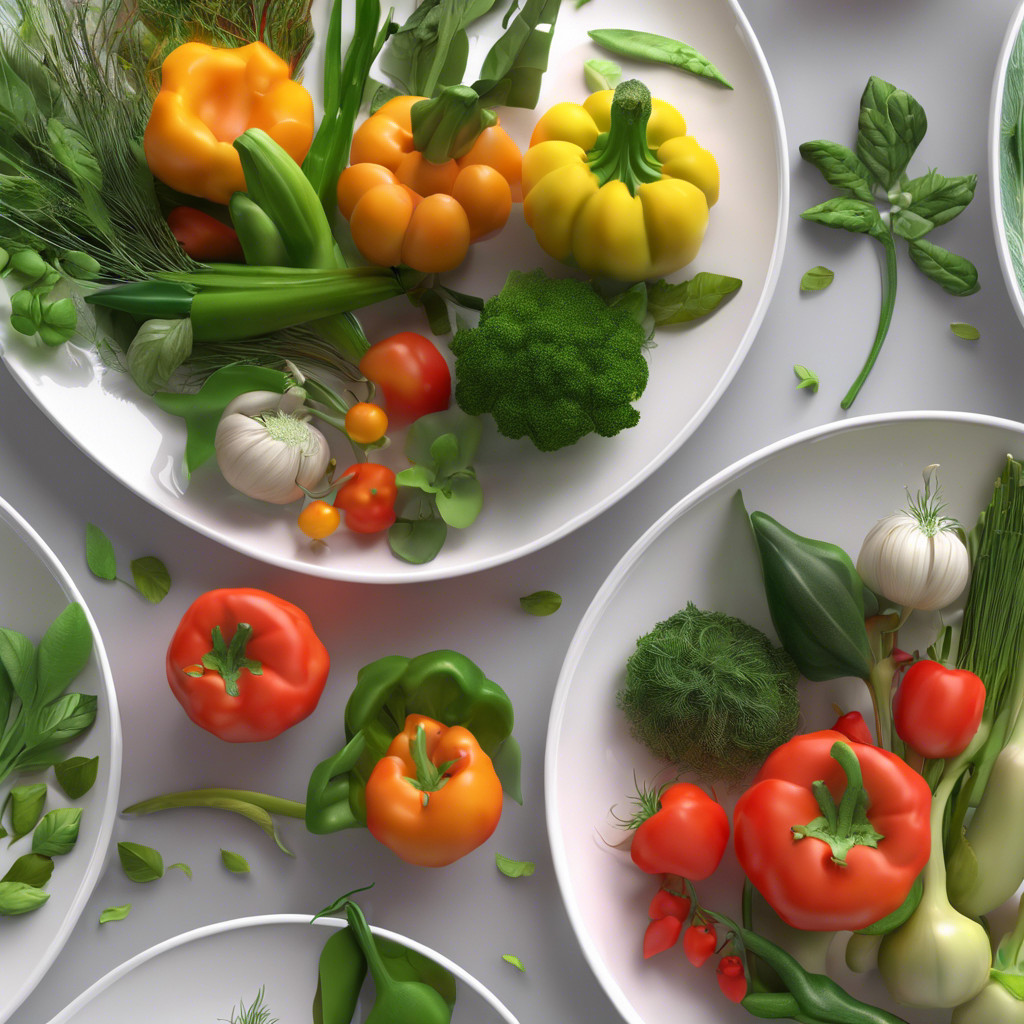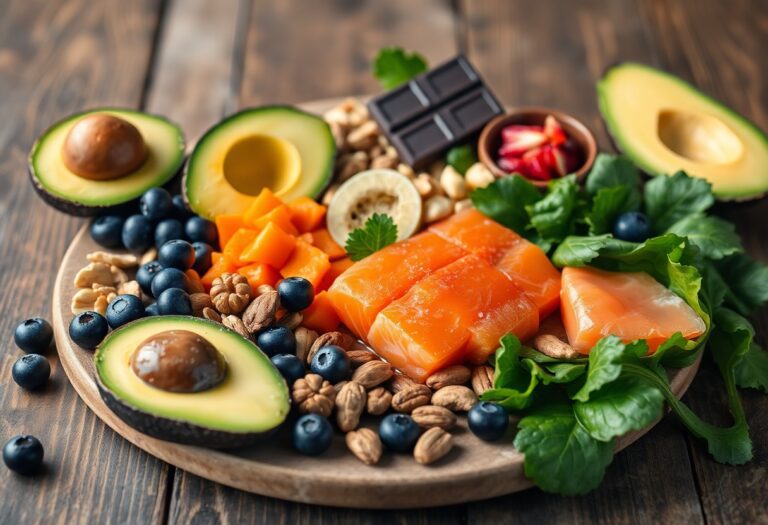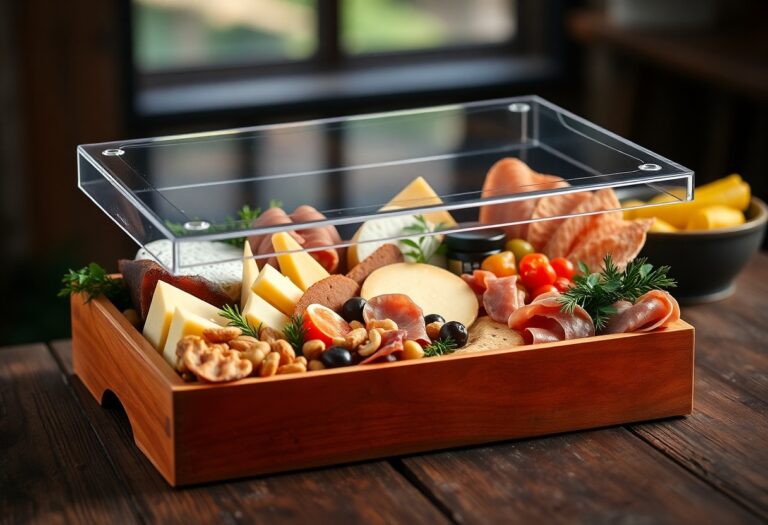Embarking on a journey is a fantastic step towards a healthier lifestyle, but maintaining a balance within this dietary choice is essential for overall well-being. By incorporating a variety of nutrient-dense foods, planning meals mindfully, and staying informed about key nutrients, it is possible to thrive on a vegetarian diet while nourishing your body with wholesome, clean ingredients. Follow these practical tips and guidelines to ensure you sustain a balanced vegetarian clean eating lifestyle that supports your health and wellness goals.

Essential Nutrients for Vegetarians
To maintain a balanced vegetarian clean eating lifestyle, it is crucial to ensure you are getting all the essential nutrients your body needs. By understanding which nutrients are important for vegetarians and how to incorporate them into your diet, you can optimize your health and well-being.
Protein Sources and How to Incorporate Them
The foundation of a vegetarian diet lies in finding alternative sources of protein to meet your body’s needs. Good sources of protein for vegetarians include beans, lentils, quinoa, tofu, tempeh, and nuts. Incorporating these protein sources into meals can be as simple as adding beans to salads, using tofu in stir-fries, or enjoying a handful of nuts as a snack. By including a variety of protein-rich foods in your diet, you can ensure you are meeting your body’s protein requirements.
Vital Vitamins and Minerals
For vegetarians, it is important to pay close attention to getting enough of certain vitamins and minerals that are typically found in animal products. Key nutrients to focus on include vitamin B12, iron, calcium, and omega-3 fatty acids. These nutrients play essential roles in maintaining overall health, from supporting red blood cell formation to promoting bone health and brain function.
Essential sources of these vital vitamins and minerals for vegetarians include fortified plant-based milk and cereals for B12, leafy greens and legumes for iron, dairy alternatives or fortified foods for calcium, and sources like chia seeds, flaxseeds, and walnuts for omega-3 fatty acids. By including a variety of these nutrient-rich foods in your diet, you can ensure you are meeting your body’s requirements for optimal health and well-being.
Planning Your Balanced Vegetarian Diet
Any successful vegetarian clean eating lifestyle begins with careful planning and preparation. This is especially important in ensuring you get all the necessary nutrients in your diet while avoiding processed and unhealthy foods.
How to Create a Meal Plan
Your first step in planning a balanced vegetarian diet is to create a weekly meal plan. This involves determining your meals for each day, making sure to include a variety of fruits, vegetables, whole grains, legumes, nuts, and seeds. It’s essential to balance your meals with sources of protein, iron, calcium, and other vital nutrients found in plant-based foods.

When planning your meals, consider trying new recipes to keep things exciting and prevent getting bored with your food choices. Make a shopping list based on your meal plan to ensure you have all the necessary ingredients on hand to prepare your meals throughout the week.
Tips for Grocery Shopping and Reading Labels
When it comes to grocery shopping for your vegetarian clean eating lifestyle, be sure to focus on whole, unprocessed foods. Shop the perimeter of the grocery store where fresh produce, grains, and legumes are usually located. Avoid the aisles with processed and packaged foods as much as possible.
- Read labels carefully and look out for hidden additives, sugars, and preservatives.
- Choose organic produce whenever possible to avoid pesticides and chemicals.
Any seasoned vegetarian clean eater knows that reading labels is crucial in making informed food choices. By checking the ingredient list and nutritional information, you can ensure you’re getting high-quality, nutrient-dense foods that support your health and well-being. Thou shall always prioritize whole foods over processed alternatives for optimal nutrition.
Tips for Grocery Shopping and Reading Labels
Grocery shopping is an essential aspect of maintaining a balanced vegetarian clean eating lifestyle. It’s where you make crucial decisions about the foods you’ll be consuming, so it’s essential to approach it with mindfulness and awareness. When you’re at the store, take your time to select fresh, organic produce and whole grains that will nourish your body and support your health goals.
How-To Incorporate Variety and Flavor
Despite the common misconception that vegetarian clean eating can be bland and boring, there are numerous ways to incorporate variety and flavor into your meals. By exploring different cooking techniques, experimenting with recipe development, and delving into international vegetarian cuisines, you can maintain a balanced and exciting vegetarian lifestyle.
Cooking Techniques and Recipe Development
On your journey to maintain a balanced vegetarian clean eating lifestyle, it’s essential to get creative in the kitchen. Try roasting, grilling, sautéing, or steaming vegetables to bring out their natural flavors and textures. Experiment with herbs, spices, and seasoning blends to add depth and complexity to your dishes. Don’t be afraid to try new ingredients and cooking methods to keep your meals interesting and enjoyable.
When it comes to recipe development, don’t shy away from trying new combinations of flavors and ingredients. Substitute meat alternatives like tofu, tempeh, or seitan in your favorite recipes to create vegetarian versions of classic dishes. Get inspiration from cooking blogs, cookbooks, and online resources to discover new and exciting ways to prepare delicious vegetarian meals.
Exploring International Vegetarian Cuisines
On your quest for variety and flavor in your vegetarian clean eating lifestyle, exploring international cuisines can open up a whole new world of tastes and experiences. From the spicy curries of India to the fresh salads of the Mediterranean, each culture has its unique vegetarian dishes that are both nutritious and flavorful. By trying out different cuisines, you can broaden your palate and discover a wide range of delicious meat-free options.
With a world of culinary traditions to explore, you can enjoy a diverse array of vegetarian dishes that will keep your meals exciting and satisfying. Whether you’re craving the bold flavors of Mexican cuisine or the comforting warmth of Japanese noodle soups, there’s a wealth of vegetarian recipes waiting for you to discover. Embrace the flavors of the world and infuse your vegetarian clean eating lifestyle with an exciting range of tastes and textures.
Overcoming Common Challenges
After following a 7-Day Clean-Eating Vegetarian Meal Plan for Weight Loss, you may find it challenging to stick to your balanced vegetarian clean eating lifestyle when faced with common hurdles. By being prepared and having strategies in place, you can overcome these obstacles and stay on track towards your health and wellness goals.
Eating Out and Social Events
The key to navigating eating out and social events while maintaining a balanced vegetarian clean eating lifestyle is planning ahead. Before dining out, research the restaurant menu online to identify healthy vegetarian options. You can also suggest dining at restaurants that offer a variety of plant-based dishes. When attending social events, offer to bring a vegetarian dish to share, ensuring there is a healthy option available. If faced with limited choices, focus on filling your plate with salads, vegetables, and whole grains, while being mindful of portion sizes.
To stay on track with your clean eating goals during social gatherings, practice mindful eating. Slow down and savor each bite, focusing on the flavors and textures of your food. Be conscious of your hunger cues and stop eating when you feel satisfied, rather than stuffed. By staying present and mindful, you can enjoy the social aspect of dining out while sticking to your balanced vegetarian clean eating principles.
Dealing with Cravings and Dietary Slips
To address cravings and prevent dietary slips, stock your kitchen with healthy vegetarian snacks and ingredients. Opt for nutrient-dense foods like fruits, nuts, seeds, and whole grains to satisfy hunger and cravings between meals. If you do experience a slip in your dietary habits, don’t be too hard on yourself. Acknowledge the slip, learn from it, and move forward with a positive mindset. Remember that a balanced lifestyle is about progress, not perfection.
It’s also helpful to identify the triggers that lead to cravings or dietary slips. Are you stressed, bored, or tired? By recognizing these triggers, you can develop alternative coping mechanisms such as going for a walk, practicing deep breathing, or engaging in a hobby to distract yourself. With mindful awareness and self-compassion, you can navigate cravings and setbacks on your journey towards maintaining a balanced vegetarian clean eating lifestyle.
Lifestyle Factors that Support Clean Eating
Keep these lifestyle factors in mind to help support your clean eating goals:
- Meal planning and preparation
- Mindful eating practices
- Regular physical activity
- Adequate hydration
- Stress management techniques
Perceiving food as nourishment for your body rather than just satisfying cravings can shift your mindset towards making healthier food choices.
Importance of Hydration and Tips for Success
Eating water-rich foods like fruits and vegetables can help you stay hydrated. Drinking an adequate amount of water daily is crucial for maintaining overall health and supporting digestion.
- Carry a reusable water bottle with you throughout the day
- Infuse water with fruits or herbs for added flavor
- Set reminders on your phone to drink water regularly
Knowing when you are thirsty versus hungry can help prevent unnecessary snacking and overeating.
How Exercise Complements Your Diet
Complements your clean eating habits with a consistent exercise routine to enhance your overall well-being. Regular physical activity can boost your metabolism, improve cardiovascular health, and increase energy levels.
Exercise that incorporates both cardiovascular activities like running or cycling and strength training exercises such as weightlifting or bodyweight workouts can help you achieve a balanced fitness routine.
That being said, staying active should be a key component of your vegetarian clean eating lifestyle to maximize your health benefits and support long-term wellness.
Conclusion
From above, maintaining a balanced vegetarian clean eating lifestyle requires mindful food choices, proper planning, and attention to nutrient intake. By incorporating a variety of fruits, vegetables, whole grains, plant-based proteins, and healthy fats into your diet, you can ensure you are getting the necessary nutrients for optimal health. With a focus on whole, unprocessed foods and staying hydrated, you can achieve a balanced vegetarian clean eating lifestyle that supports your overall well-being.
FAQ
Q: What is a balanced vegetarian clean eating lifestyle?
A: A balanced vegetarian clean eating lifestyle involves consuming whole, plant-based foods while avoiding processed and refined items. It focuses on nutrient-dense options like fruits, vegetables, whole grains, and plant-based proteins.
Q: Why is it important to maintain a balanced vegetarian clean eating lifestyle?
A: A balanced vegetarian clean eating lifestyle can improve overall health, increase energy levels, aid in weight management, and reduce the risk of chronic diseases such as heart disease and diabetes.
Q: How can I ensure I am getting enough nutrients on a vegetarian clean eating diet?
A: To ensure you are getting all the necessary nutrients, focus on eating a variety of foods including fruits, vegetables, whole grains, legumes, nuts, and seeds. Consider consulting with a nutritionist or dietitian for personalized advice.
Q: What are some key components of a balanced vegetarian clean eating meal?
A: A balanced vegetarian clean eating meal should include a source of protein (such as tofu, tempeh, or legumes), a variety of colorful vegetables, a whole grain (like quinoa or brown rice), and a healthy fat source (such as avocado or nuts).
Q: How can I eliminate processed foods from my vegetarian clean eating diet?
A: To eliminate processed foods, focus on cooking meals at home using fresh ingredients. Avoid foods with long ingredient lists, artificial additives, and added sugars. Opt for whole foods in their natural state whenever possible.
Q: Is it necessary to supplement on a vegetarian clean eating diet?
A: While it is possible to meet all nutrient needs on a balanced vegetarian clean eating diet, some individuals may benefit from supplementing certain nutrients like vitamin B12, vitamin D, and omega-3 fatty acids. Consult with a healthcare provider to determine if supplementation is necessary for you.
Q: How can I develop a sustainable and long-term vegetarian clean eating lifestyle?
A: To develop a sustainable vegetarian clean eating lifestyle, focus on gradual changes, find recipes and meal plans that you enjoy, practice mindful eating, stay hydrated, and listen to your body’s hunger and fullness cues. Consistency is key in maintaining long-term success.


